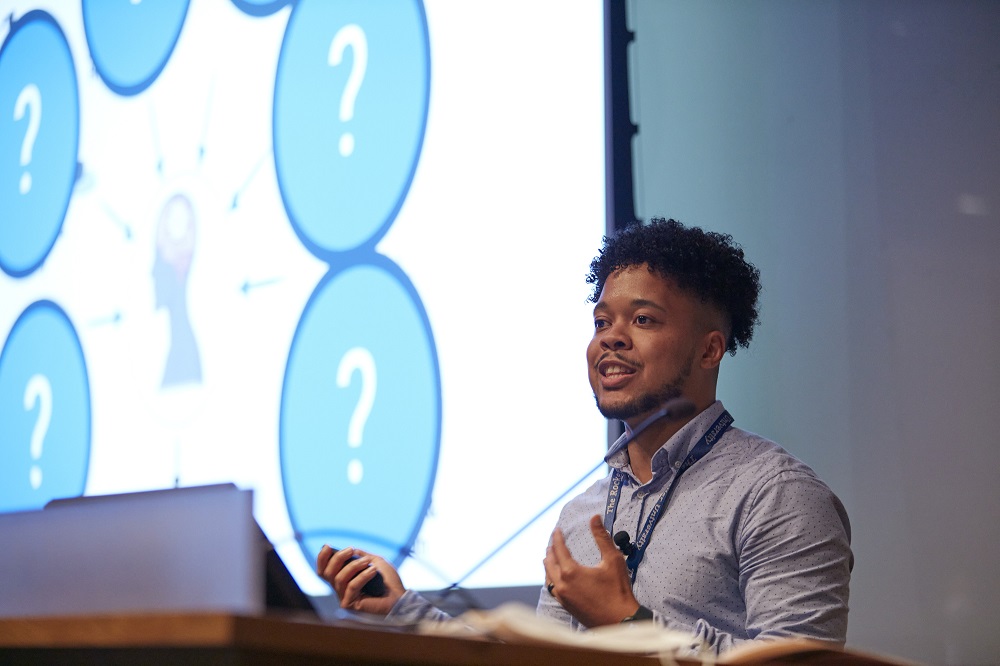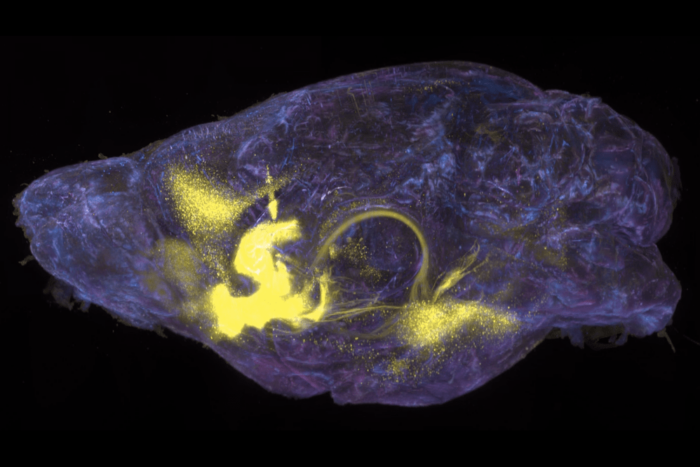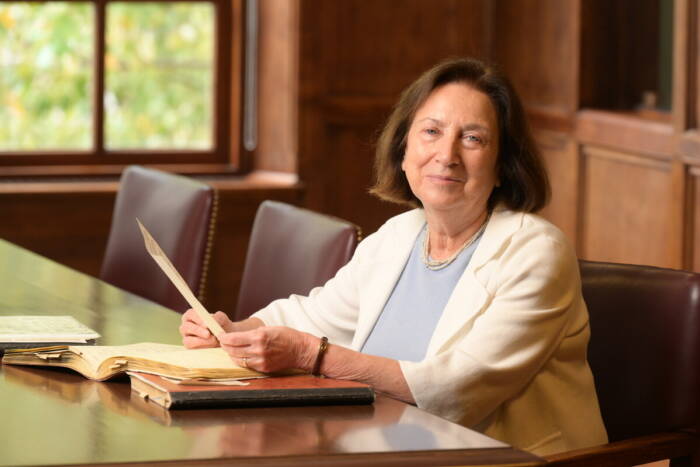New workshop brings exceptional scholars to campus

Cory White was one of 10 young scientists attending the workshop.
This summer, Rockefeller’s inaugural Exceptional Scholars Workshop brought 10 highly talented postdocs from underrepresented minority groups to campus for two days of trainings and talks designed to prepare them for the faculty search process. A core component of the program, which will occur biennially, is matching each scholar with a Rockefeller faculty member who will serve as a long-term mentor as the scholars navigate the transition from postdoc to independent investigator.
This year’s cohort, selected through a competitive national search, included Francisco Barriga from Memorial Sloan Kettering Cancer Center, Maria Dieterle from the Albert Einstein College of Medicine, Leah Guthrie from Stanford University, Colwyn Headley from Stanford University, Luis Hernandez-Nunez from Harvard University, Julieta Lischinsky from New York University Langone, Jasmine Miller-Kleinhenz from Emory University, Piere Rodriguez-Aliaga from Stanford University, Matheus Victor from the Massachusetts Institute of Technology, and Cory White from Johns Hopkins University.
In advance of the workshop, the scholars reviewed and edited their draft chalk talks with their mentor. At the workshop, each scholar presented their future research plans, a hallmark feature of the faculty search process. Mentors also detailed their personal experiences applying for faculty positions as well as reviewing potential candidates.
At a later fireside-style chat moderated by Richard P. Lifton, Rockefeller’s president, the scholars heard from Kenneth C. Frazier, former CEO and current chair of the board of directors of Merck. The first and only Black CEO among major pharmaceutical companies, Frazier shared his life’s story and professional lessons he learned throughout his career.
On the second day, Ashton Murray, Rockefeller’s chief diversity officer, moderated a panel discussion including Elizabeth Campbell, research associate professor, Jeanne Garbarino, director of RockEDU science outreach, Erich D. Jarvis, professor and head of the Laboratory of Neurogenetics of Language, and Andrea R. Morris, assistant dean and director of career and professional development. The group discussed their experiences navigating issues of identity and the tools and approaches they’ve used to address these challenges.
The idea for this inaugural workshop first took shape in 2020 when Rockefeller faculty Sohail Tavazoie, Daniel Mucida, and Kivanç Birsoy began discussing what they could do to support underrepresented minority applicants for faculty positions and to enhance diversity efforts on campus.
“It was fantastic interacting with these future scientific leaders, learning about their exciting science, and also learning about the challenges that they face—and on top of all that seeing how excited they are about the next chapter of their lives,” says Tavazoie, Leon Hess Professor and head of the Elizabeth and Vincent Meyer Laboratory of Systems Cancer Biology. “It’s rewarding to think that we’ve been able to make a small, yet positive impact on their career trajectory. Our intention and hope is that the faculty they’ve connected with will mentor them for not just the next year or two, but perhaps for their careers over the long haul.”
Murray’s newly established Office of Diversity, Equity, and Inclusion was enlisted to provide core support and feedback on how to create an impactful program to dovetail with the university’s strategic goals of both innovating quality diversity programming as well as recruiting faculty applicants from varying backgrounds. For this year’s scholars, Murray and faculty mentors are available going forward to serve as sounding boards as the scholars advance in their search process. Additionally, Rockefeller Trustee Daniel Pacthod, global co-leader of McKinsey Sustainability, has invited the scholars to join McKinsey’s Connected Leaders Program, a professional development initiative for minority leaders.
In future Exceptional Scholars Workshops, Murray is hoping to engage more of the Rockefeller community, possibly offering additional discussions on topics ranging from technology transfer to how to negotiate one’s first faculty contract. More broadly, a process is underway to consider similar programing for graduate students making the transition to becoming postdocs, as well as for early career faculty in the process of establishing their labs.
“We are really looking to apply the same creativity and innovation that we see in our labs to our DEI efforts,” says Murray. “Beyond altruism, as a community and an institution, we are made better by these events and programs—they give us a chance to hear from one another and open the door to think about what’s next.”


